Britain has a rich tradition of military poetry, but most of it stems from the two World Wars – recent military verse hasn’t achieved quite the same impact.
“It’s interesting; we have a great deal of substantial writing from those conflicts, but unlike in America, where the Vietnam War produced a large number of veterans who went on to become writers, poets and artists, we haven’t had very much poetry from members of the UK Armed Forces since WWII,” says Niall Munro director of the Oxford Brookes Poetry Centre.
Last year, Niall and the Centre set out to change that by running poetry workshops for British and American veterans. The Poetry Centre, which is a home for research into poetry and advocacy of its value in society, has since run three weekend-long courses. Led by poets, veterans and academics, the course explores the ways in which writing can enable military personnel to think about their experiences, with an anthology of the best writing compiled at the end. Two Members have participated, and it’s hoped more will in the future.
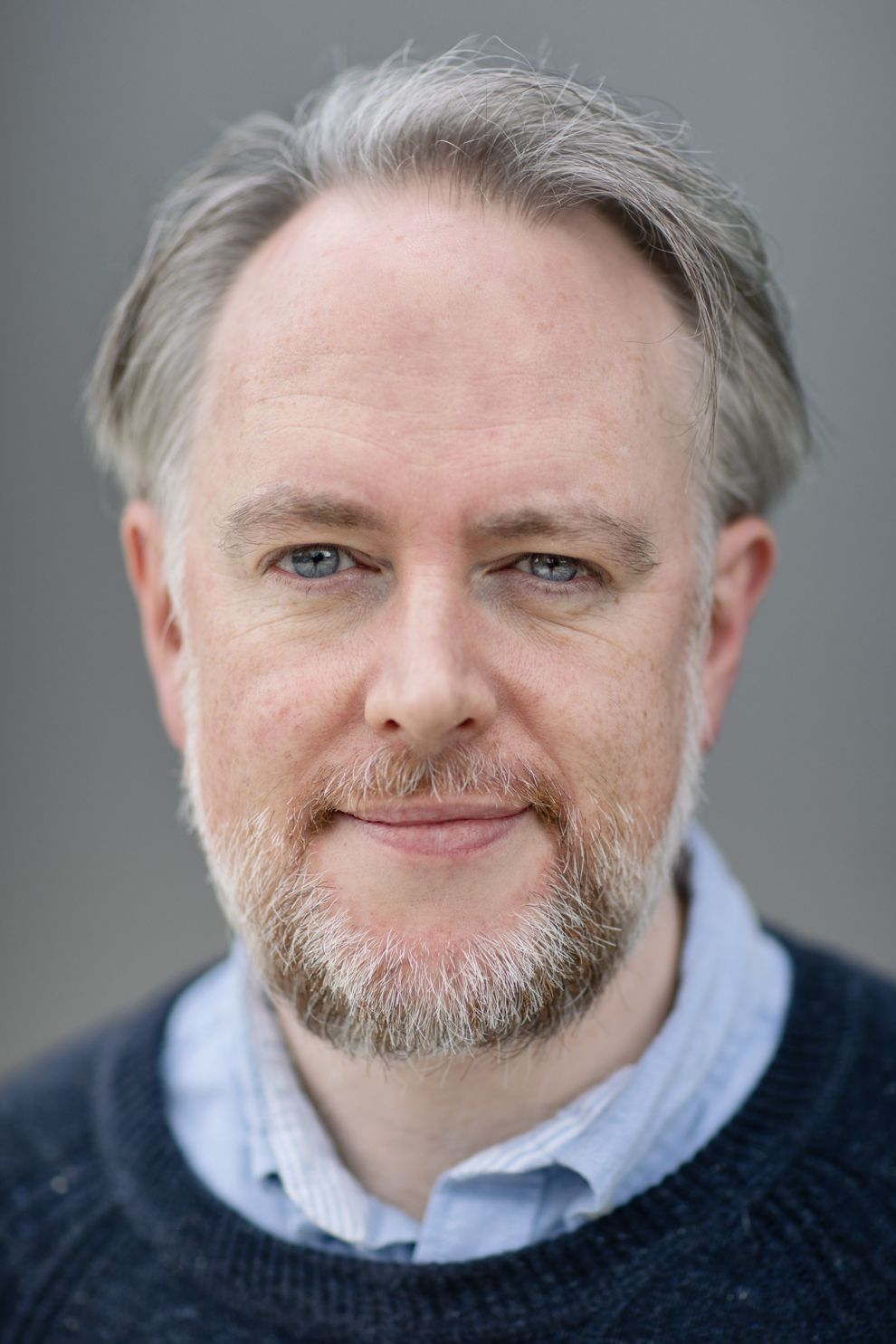
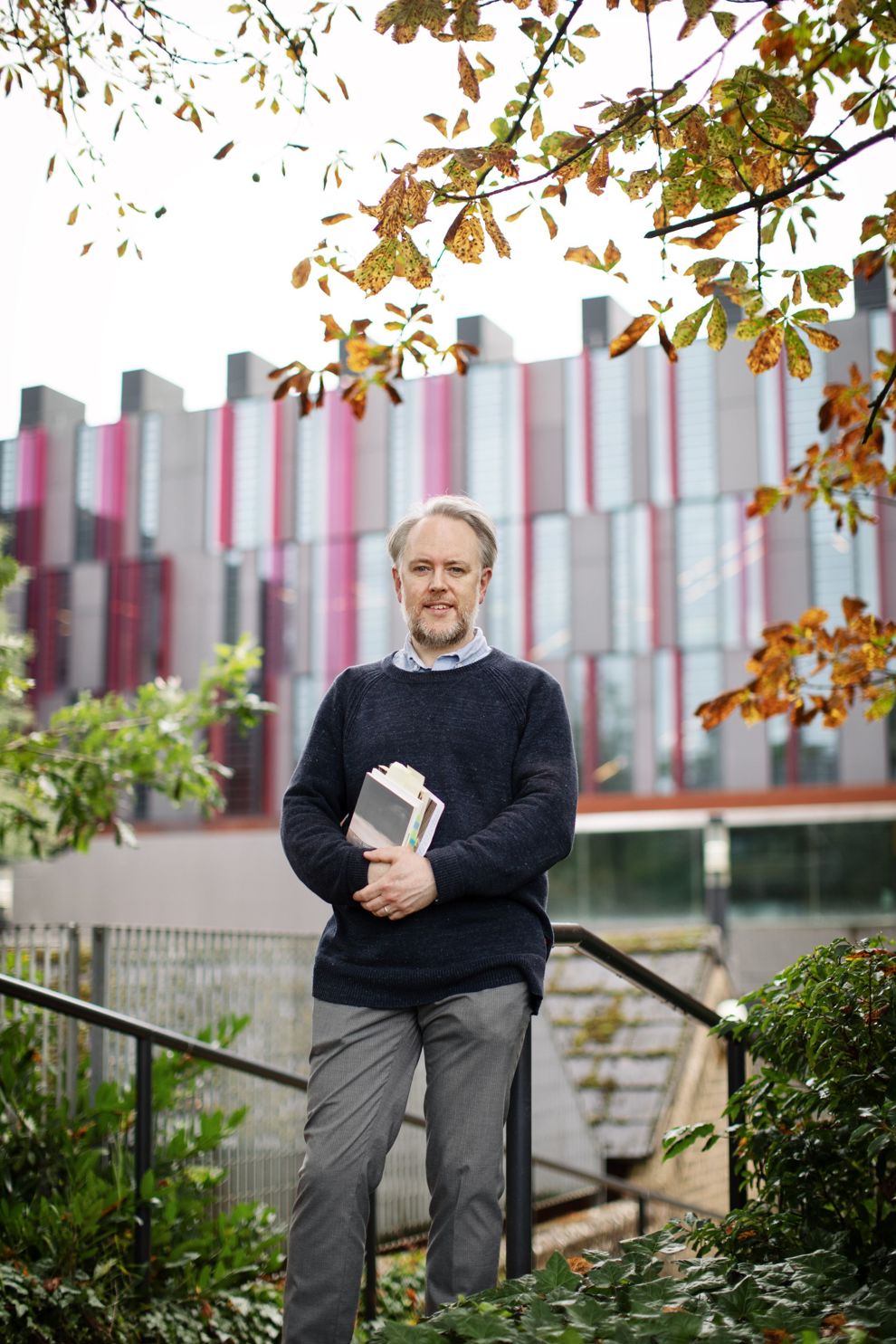
“At the Centre, we were recently involved in a project about war commemoration that involved academics, architects, musicians, novelists, poets, writers and veterans,” says Niall. “From those, I became interested in how veterans were (or often were not!) included in planning commemorations.
Often, they’re not consulted. Veterans we spoke to felt the planning of such things can be very ‘top-down’; that they’re told by the government what’s going to happen without necessarily feeling as though their voices are being heard.
“Younger veterans aren’t always included in commemorations of past conflicts either. So we thought it would be good to involve those who had taken part in recent conflicts and give them a voice. One of the ways we could do that was through poetry.”
PUSHING THE ENVELOPE
Three courses, each involving 10 veterans, have been run in Oxford. Some participants have travelled from the New York Veterans Workshop and the Joiner Institute in Boston, which researches war as well as its social consequences, while the third course was specifically aimed at women.
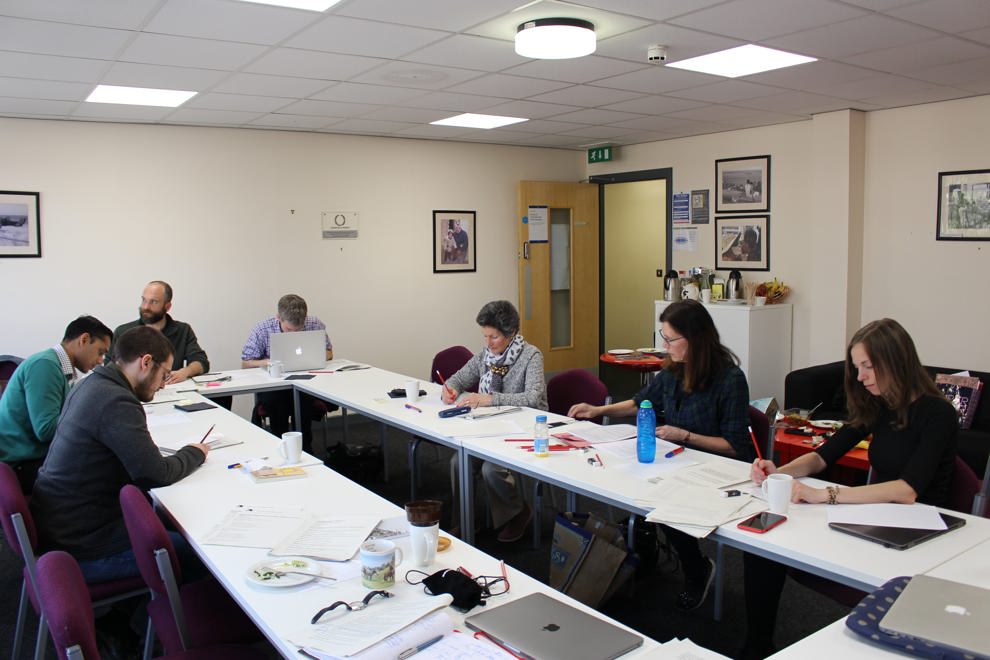
“We thought it would be interesting to gain a different perspective on military poetry by hosting a group that was made up entirely of women,” says Niall. “The participants got to discover a tradition that they could fit themselves into, that they’d never heard about before.
“One of the people involved in planning the workshops was Alex Donnelly, a Blesma Member who had served in the Navy and who had been injured in an IED explosion. Through him we met Blesma staff, and from there Janet Wilkes, a Blesma Widow, came on the course, while Member Noel Harrower contributed to our anthology.”
The first day-and-a-half of each course was spent reading and listening to poetry about conflict – from the World Wars to the American Civil War. The remainder of the workshop was led by poet Susie Campbell, who worked with the group on different exercises to stimulate their writing.
“We tried to get people thinking about language – things like military jargon,” says Niall. “We also looked at visual stimuli like mark-making – expressing yourself on the page without words – which can then inform how you set out a poem. We used materials like paint, charcoal and collage…
“The group completed exercises to do with commemoration, and explored how you can create your own journey through writing. We wrote haiku – Japanese short form poetry – and they are often linked with bits of prose to create a narrative called haibun, so we tried that, too.”
Niall believes that veterans, each with a unique and often extreme set of life experiences, are able to produce poetry from a fresh angle. “What came home to us is that these are largely ordinary people doing extraordinary work,” he says. “A lot of perceptions were challenged, including the idea that all veterans have fought, which isn’t true. A lot have very different memories of being in the Forces.
“Drawing on psychology research into public perceptions of ex-Service personnel, we also challenged the idea of military veterans being put on a pedestal and thought of as heroic figures. That’s not necessarily how they see themselves at all. They often view themselves as people who just did a job. And we challenged the idea that civilians might not be able to access their poetry, or what they might have to say, because of the language they use or because their experiences might seem radically different. It is remarkable how viscerally connected readers can feel to military experiences, even if they have never had those experiences themselves.”
THE ARTS
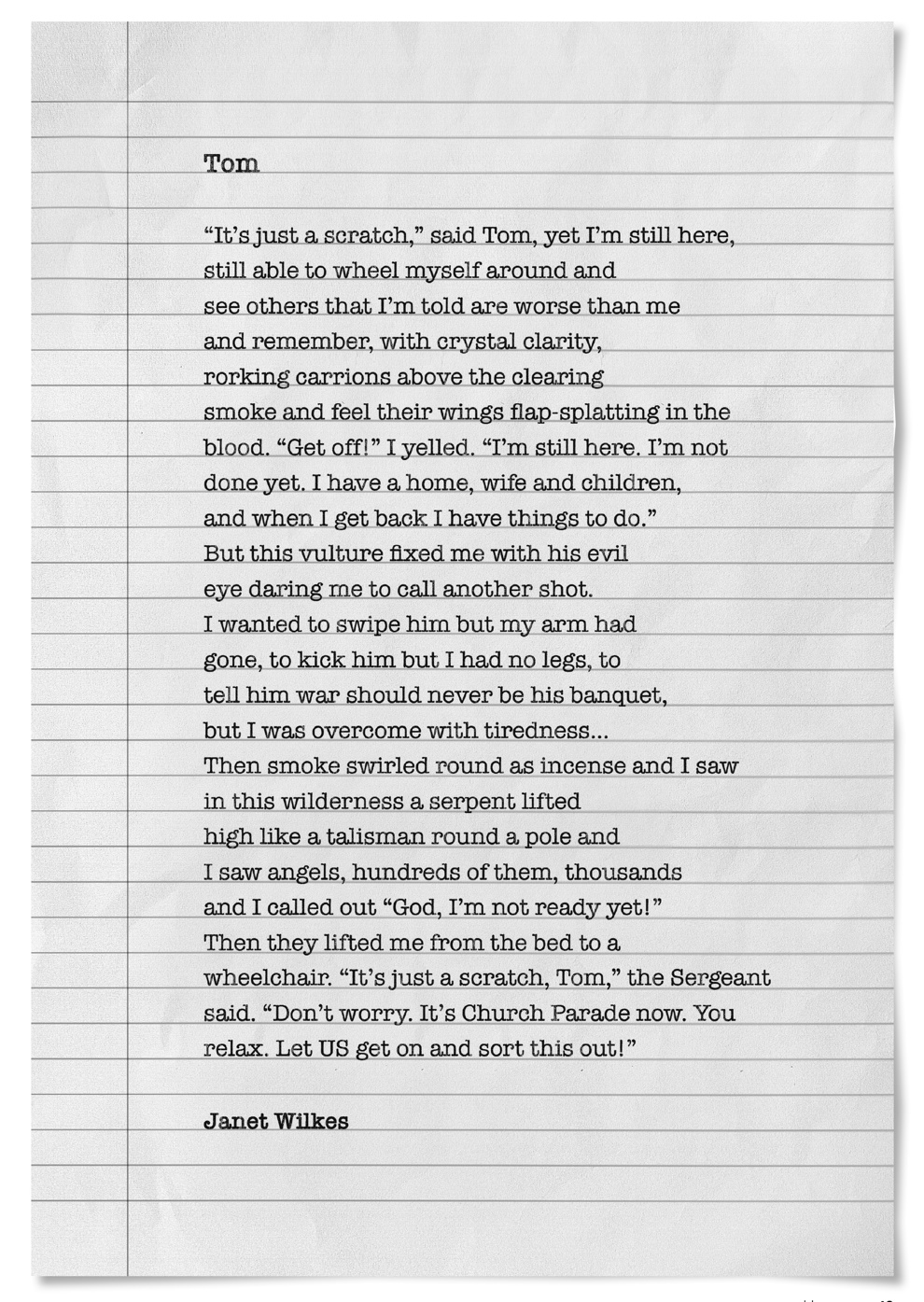
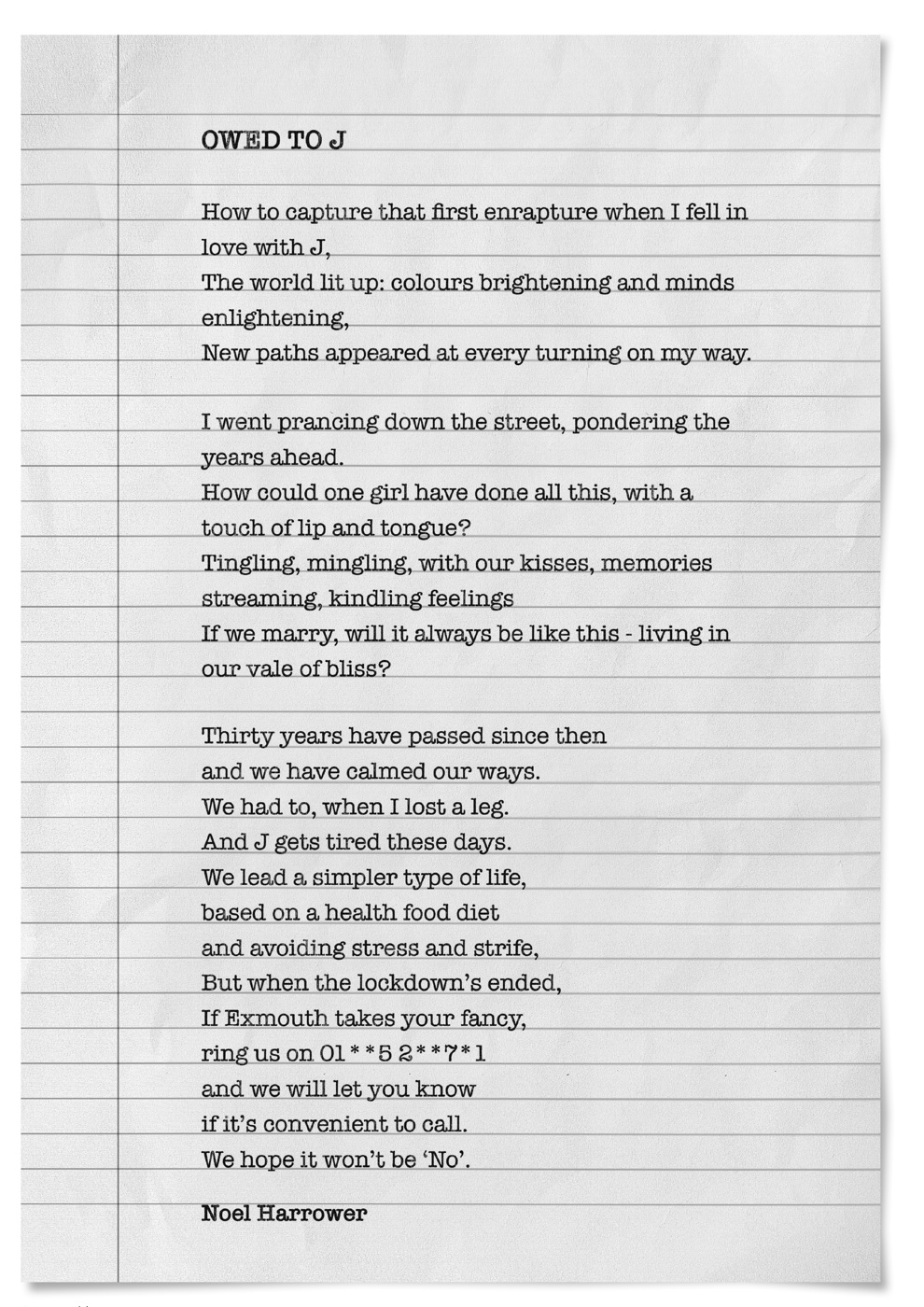
Tales from Iraq and Afghanistan weren’t always negative, either. “Hearing the veterans talk about that was fascinating,” says Niall. “They shared experiences of Afghan culture, which many of them embraced. They realised a lot of civilians don’t understand those cultures, or who they were fighting. Thinking about those relationships, and how people in conflict aren’t necessarily enemies, was revelatory.
“Some of the poems the group produced explored trauma, while others showed scepticism about whether Afghanistan or Iraq should have been invaded in the first place. Overall, the courses have showed us that veterans aren’t robots simply sent into battle to do as they’re told. They have an intellectual freedom.”
Potential course-goers might be wary of the idea of poetry. Isn’t it too difficult to understand? Too intellectual or complex?
“The Poetry Centre’s mission is to break this down, and it often means just not being afraid of poetry,” says Niall. “Maybe you studied a bit of WWI poetry at school. It’s well-crafted, using words you might not know, imagery you might not understand. But poetry is about picking up material around you and putting it on the page.
“It doesn’t have to be wonderfully crafted; nobody writes a poem that is fullyformed as soon as it goes on to the page. You can put down what you like to start with and shape it over time. You enter into a relationship, and that is something that you might feel does something for you. For a lot of veteran writers, it’s about wellbeing. Poetry can be therapeutic. It can give you a different kind of status. You might come out of the military and feel you need to reidentify with yourself. Poetry can help with that, help to craft a new sense of yourself.
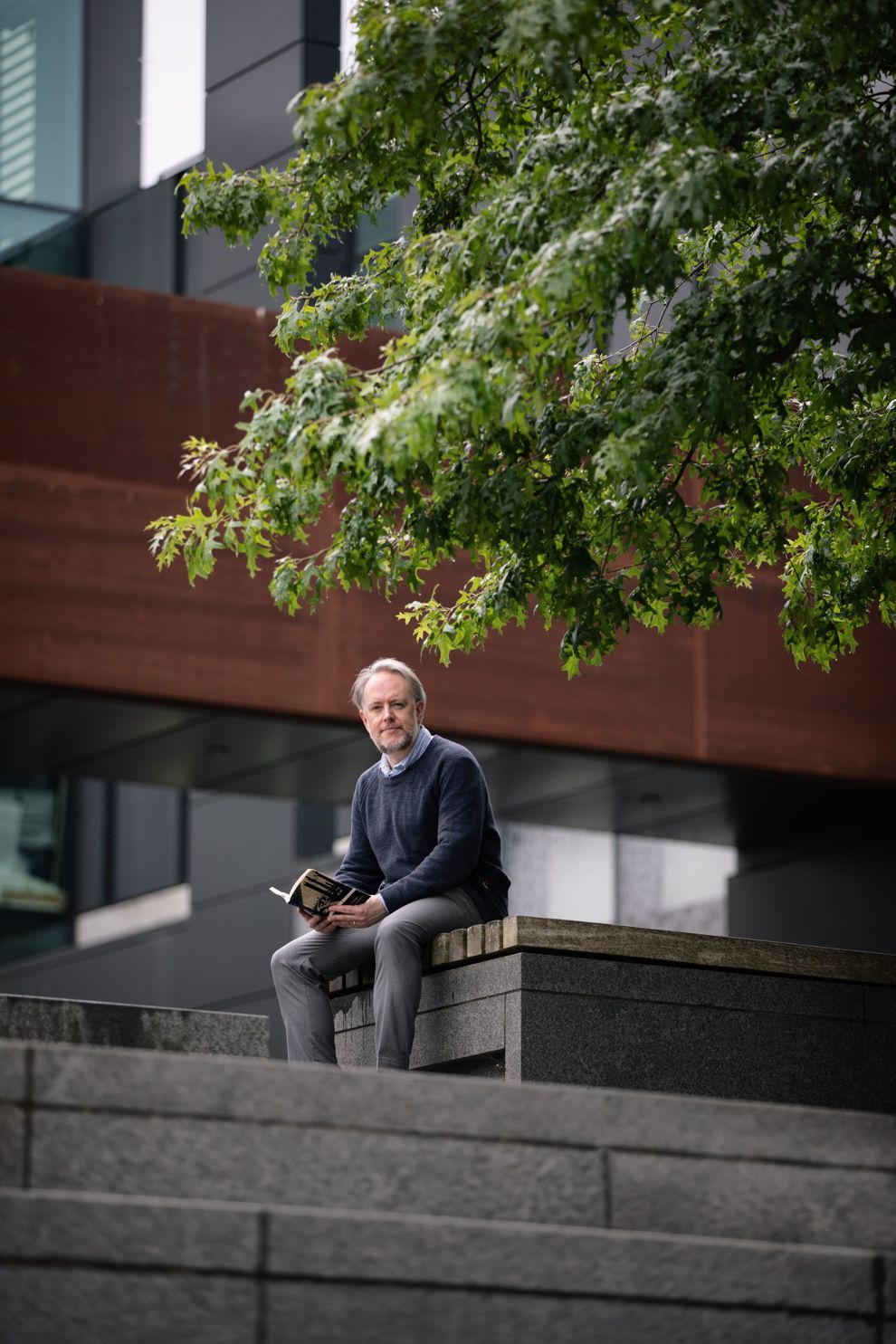
CHANGING PERCEPTIONS
With Blesma increasingly embracing the arts – witness the success of photography, storytelling and painting courses – this is an obvious next step, and a good option for those who might not be attracted to the more physical pursuits on Blesma’s calendar. These creative dimensions can help change the perceptions of soldiers, too.
“People might not associate soldiers with the arts, so this can help to address that,” says Niall. “Everyone has a creative side, but they don’t always tap into it. Something like poetry can push people into thinking differently about experiences they’ve had.
“We don’t want to re-traumatise people, so we are careful about how we address things like conflict. But the military is a rich subject, and if there were more art and poetry out there by veterans, it would change the way they are viewed.
“An American on the course pointed out that people always thank him for his service, but he wondered if they know what service actually means? Most people don’t. In the UK, we often focus on commemoration, and for the rest of the year veterans are in the background. A better understanding of their lives and their situations might help dispel some of the macho stuff, and allow for the fact that veterans can have difficult times.”
The three courses so far have been deemed a major success. Niall says that the participants performed brilliantly and were thrilled to see their work and thoughts treated seriously. Nerves were overcome, and many will continue to write.
In these strange times of coronavirus, its uncertain when the next course will run, but Niall is optimistic. “It’s all a bit up in the air at the moment,” he says, “but I’m always happy to hear from veterans who are interested in writing. Hopefully, we can secure funding to run another course soon, and more Blesma Members will come along when we do. I think it can really help them.”
You can read the anthology at www.brookes.ac.uk/poetry-centre/veterans-poetry-workshops
We can help
We are dedicated to assisting serving and ex-Service men and women who have suffered life-changing limb loss or the use of a limb, an eye or sight. We support these men and women in their communities throughout the UK. Click the link below to find out the different kinds of support we offer.
Get Support
Leave a comment
Join fellow Members and supporters to exchange information, advice and tips. Before commenting please read our terms of use for commenting on articles.